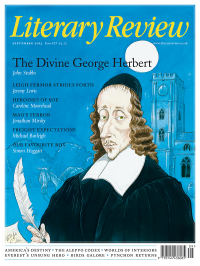Kaite Welsh
Fleming’s Choice
Fair Helen
By Andrew Greig
Quercus 291pp £16.99
Andrew Greig’s version of a Scottish Border song ‘The Ballad of Fair Helen of Kirkconnel Lea’ is a tense, atmospheric study of a political powder keg and the love triangle that threatens to ignite it. In one of the best historical novels of recent years, Greig dusts off the past and presents it with tremendous skill.
Although the ‘Auld Hag’ Elizabeth I refuses to name her successor to the English crown, King James VI of Scotland is poised to unite the two countries, and minor lairds are jostling for favour and position. It is this world to which Harry Langton, scholar turned reluctant spy, returns when an old friend, Adam Fleming, falls in love with Langton’s cousin, the beautiful Helen of Annandale, who is promised to a titled man eager for any advancement he can get. Greig’s story moves from the late 16th century and his narrator’s youth and naivety to his last days, when he has sought refuge in Hawthornden Castle, where he prepares to tell the truth – or at least, his truth – about the complex, contradictory woman whom folklore commemorates as Fair Helen.
Langton is the perennial outsider. He has come from a humble background but was well educated and prefers the written word to action and the rarefied atmosphere of the university to the battlefield. His ambiguous sexuality is hinted at by others, and is never fully explored, but he clearly prefers

Sign Up to our newsletter
Receive free articles, highlights from the archive, news, details of prizes, and much more.@Lit_Review
Follow Literary Review on Twitter
Twitter Feed
It wasn’t until 1825 that Pepys’s diary became available for the first time. How it was eventually decrypted and published is a story of subterfuge and duplicity.
Kate Loveman tells the tale.
Kate Loveman - Publishing Pepys
Kate Loveman: Publishing Pepys
literaryreview.co.uk
Arthur Christopher Benson was a pillar of the Edwardian establishment. He was supremely well connected. As his newly published diaries reveal, he was also riotously indiscreet.
Piers Brendon compares Benson’s journals to others from the 20th century.
Piers Brendon - Land of Dopes & Tories
Piers Brendon: Land of Dopes & Tories - The Benson Diaries: Selections from the Diary of Arthur Christopher Benson by Eamon Duffy & Ronald Hyam (edd)
literaryreview.co.uk
Of the siblings Gwen and Augustus John, it is Augustus who has commanded most attention from collectors and connoisseurs.
Was he really the finer artist, asks Tanya Harrod, or is it time Gwen emerged from her brother’s shadow?
Tanya Harrod - Cut from the Same Canvas
Tanya Harrod: Cut from the Same Canvas - Artists, Siblings, Visionaries: The Lives and Loves of Gwen and Augustus John by Judith Mackrell
literaryreview.co.uk